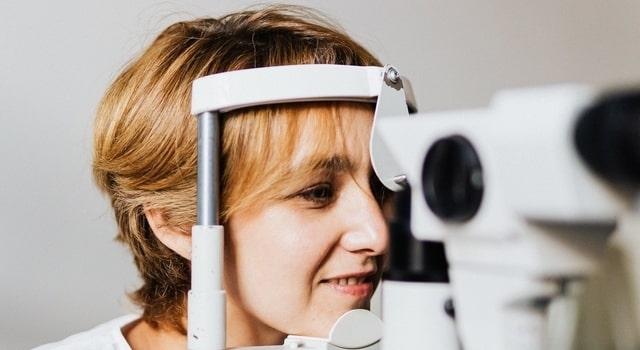
As the famous saying goes, ‘With age comes wisdom.’ Unfortunately, age also comes with a heightened risk of developing sight-threatening eye conditions like cataracts, glaucoma, age-related macular degeneration (AMD) and diabetic retinopathy.
Many of these eye conditions show no obvious signs or symptoms in their initial stages, when the chances of maintaining your good vision and preventing vision loss are highest. The best way to catch eye disease early is by having regular eye exams.
So, if you’re over 60, make sure to schedule regular comprehensive eye exams at Tesla Practice in Tesla City.
What Can An Eye Exam Tell You?
The purpose of a comprehensive eye exam isn’t just to evaluate your visual clarity (eyesight). During a thorough eye exam your eye doctor will also examine the inner structures of your eyes and look for anything out of the ordinary: from signs of dry eyes and allergies to eye disease and eye cancer.
In addition, an eye exam can often reveal signs of certain health conditions, such as diabetes, high cholesterol and high blood pressure.
What Is Checked During An Eye Test?
All eye exams involve a series of tests to enable your eye doctor to thoroughly evaluate your eye health and visual clarity. Most eye doctors recommend a dilated eye exam to anyone over the age of 65. Dilating your pupils gives your eye doctor a better view inside the eye. This allows an easier examination of the retina and optic nerve situated in the back of your eye.
Here are some of the tests you may encounter during your senior eye exam:
- Preliminary tests – evaluate your depth perception, color vision, eye muscle movements and pupillary light response
- Visual acuity – measures how clearly each of your eyes can see both near, intermediate and distant objects
- Refraction - determines your optimum optical prescription providing clear and sharp vision at all distances
- Digital retinal imaging – provides a high resolution, colored picture of your retina, optic nerve and the blood vessels in the back of your eye
- Tonometry (eye pressure test) – assesses the amount of pressure within your eye to rule out glaucoma
- Slit-lamp exam – offers a magnified view of your inner and outer eye structures, including your tears, eyelids, tear ducts, cornea, pupil, iris, lens and retina
- Ophthalmoscopy – enables a magnified examination of the back of your eye under bright light to assess your eye health, including cataracts, retinal detachment, optic nerve damage and AMD
- Dilated pupil exam – allows your eye doctor to view your retina and optic nerve
How Often Should Seniors Get An Eye Exam?
Most eye doctors recommend that seniors get an eye exam every year, and more frequently if you have any eye condition, diabetes or a family history of eye disease.
Regular annual eye exams are vital for maintaining your eye health and preserving your vision.
Enjoy your golden years with clear vision and healthy eyes. Contact Tesla Practice in Tesla City today to schedule an eye exam.
Q: What’s the difference between a vision screening and an eye exam?
- A: A vision screening is a basic test that generally checks only your visual acuity, such as if you have myopia (nearsightedness). It doesn’t assess eye health or provide an optical prescription for clear vision. A vision screening can be performed by almost anyone — a nurse, a doctor or even an untrained volunteer.An eye exam can only be performed by a qualified and licensed eye doctor. This type of exam is a comprehensive way to detect any vision or eye health problems like dry eyes and allergies, and also looks for early signs of eye disease. Based on the results, your eye doctor can choose the best solution for you and your lifestyle.
Q: Can I drive after a dilated eye exam?
- A: Pupil dilating eye drops will make your eyes more sensitive to bright light, especially sunlight. You may also experience some blurred vision for a couple of hours. So while wearing sunglasses can help to reduce light sensitivity, driving isn’t recommended after a dilated pupil exam. If you’re having a dilated eye exam, it’s best to arrange for someone to drive you home from your appointment and schedule your workday or errands accordingly.
Quality Frames For Prescription Eyeglasses & Computer Glasses. Visit Tesla Practice for an eye exam and eyeglasses that match your style.